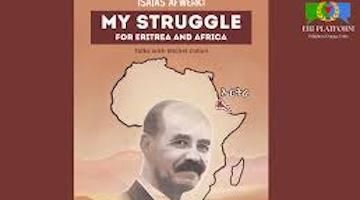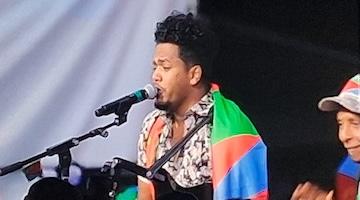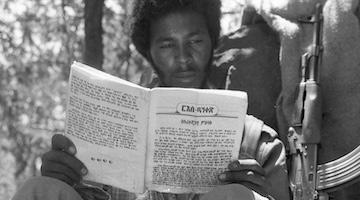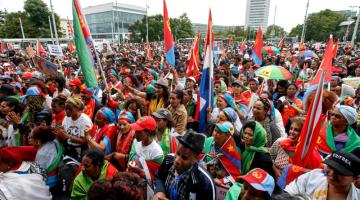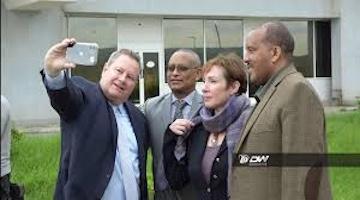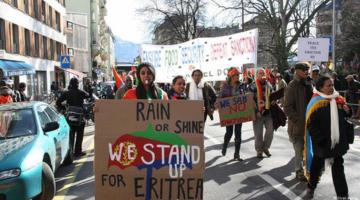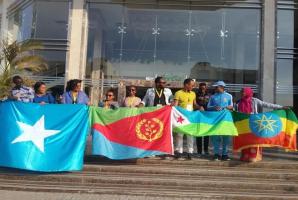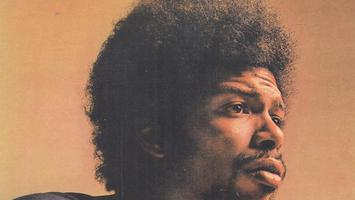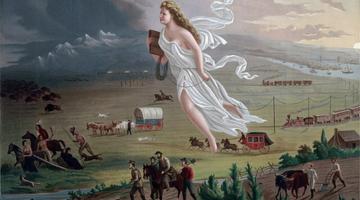The work of a Black lawyer named Lumumba from Detroit drew a young man from Eritrea to Jackson, Mississippi, last year. “I learned how Chokwe Lumumba valued Black diasporan engagement to build solidarity and power,” writes the author. “I experienced the egalitarian spirit of Eritrea in Jackson’s economic justice movement that’s being led by Cooperation Jackson.”
This article previously appeared on the author’s blog, Hafash1.
“I learned how Chokwe Lumumba valued Black diasporan engagement to build solidarity and power.”
I spent June 26th-28th in the capital city of Jackson, Mississippi, attending the Southern People’s Movement Assembly for a Just Transition, hosted by Cooperation Jackson at the Lumumba Center for Economic Democracy and Development.
Why Mississippi? Well, first it must be expressed that Hollywood and main stream media have traditionally tailored pre-set impressions of black America. There are stereotypical images the world holds of Mississippi as a place associated with slavery, Jim Crow era racism and KKK burning of crosses in backyards, etc. Indeed, racism has left its unique and indelible mark in Mississippi and the Deep South and there are conscious efforts being made to dismantle the economic, social, political and cultural systems that carry on the legacy of oppression in various forms. For an urban Eritrean immigrant living in Houston, Texas, how do the efforts of dismantling oppression and realizing black self determination in Mississippi tie in with my global southern identity and struggles?
It all started in the fall of 2013 after hearing chatter from alternate media sources such as Democracy Now! and Al-Jazeera about Chokwe Lumumba being hailed as America’s most revolutionary mayor.
The name Lumumba sparked my interest and got me wondering on what a person with such a politically significant African name is doing in the deep south of America. I researched Chokwe Lumumba and found out that he was an internationalist who believed in global Afrikan self determination and solidarity. Such was the vision that led to his migration from Detroit, Michigan to Jackson, Mississippi, his radical political engagement in creating people-centered political consciousness and revolutionary platforms of action. Chokwe Lumumba’s 30-year building of such genuine people’s power through legal defense work to cultural work has endeared him to many across the city and beyond. He co-founded Malcolm X Grassroots Movement and was instrumental in several grassroots based justice efforts. I was able to keep up with Lumumba through virtual media sources and from a distance, I developed tremendous respect for the mayor’s radicalism and political astuteness.
“The name Lumumba sparked my interest and got me wondering on what a person with such a politically significant African name is doing in the deep south of America.”
In the spring of 2014, on January 25th, I was saddened by the news of Mayor Chokwe Lumumba’s death. At that time, I had suspicions about the reason for his death and was in agreement with Glen Ford’s (Black Agenda Report) sentiment: “He died eight months into his term, but the state refused to do an autopsy. Lots of folks suspect he was assassinated for challenging the ruling order – which is logical, since Mississippi has murdered thousands of Black people for far less reason than that.”
A few weeks after the death of Mayor Chokwe Lumumba, it was announced that the late mayor’s son, Chokwe Antar Lumumba, was in the run for his father’s mayoral seat. I tuned in every day for updates on the mayoral race.
By 2014, I was completely jaded about democracy in America after casting my vote for Obama once. I had hopes that Obama would bring rationality to American foreign policy and critically engage with Eritrea in building a progressive bilateral relationship, but the result ended up in personal disappointment and frustration. I witnessed Obama give his speech during his presidential run in Texas in 2008 and totally fell for “Hope and Change” campaign mantra.
I now believe Obama’s presidency is democratic liberalism’s greatest symbolic triumph while black America and other people of color are subjected to continued oppression and systemic challenges.
The election of Obama to the presidency has manifested in nothing but a continuation of imperialist foreign policy and control in Africa, under a black face. Nonetheless, it was an in-depth interview with Kali Akuno, one of the organizers behind the campaign and movement in Jackson, that really inspired and snapped me out of my jaded frustration of liberal democracy. I believe in a pragmatic revolutionary path, meaning I’m flexible to reformist push within the confines of bourgeois democracy as long as it aids in the dismantling of the capitalist system and is always evolving. For that reason, in April of 2014 I was inspired to book my flight and volunteer in the election campaign of Chokwe Antar Lumumba.
“I developed tremendous respect for the mayor’s radicalism and political astuteness.”
Before going further into details of the trip it has to be understood again that I was entering a new world and I have never been to Jackson or have met anyone from there. I arrived in Jackson on the afternoon of April 21st and was picked up at the airport by a volunteer of the election campaign. One of the organizers at the campaign headquarters was Brittany Gray, who I was in contact with prior to my arrival and helped me plan my volunteer work. Upon arrival I found out that all the other organizers were friendly and made me feel welcome to their city. The campaign headquarters was filled with good energy and packed with local people and volunteers from several places. After arriving at the headquarters, I was asked to go door to door in neighborhoods to handout campaign brochures and I was excited to be in a car pool with total strangers.
During the door to door campaign in the neighborhoods, I ended up finding out that I was with Mayor Chokwe Lumumba’s sister from Detroit. Throughout my time, the family of Chokwe Lumumba showed tremendous love and made sure I had free hotel accommodation and food.
All of the next day, I was in the streets and at various highway intersections to continue campaigning and it has to be stated that I never felt so alive in my life. I was out of my shell and was easily engaging in conversations with local people. I enjoyed sharing with people I met at the campaign headquarters about where Eritrea was and I even had one person give me a warm brotherly hug because I was from Africa.
“Antar Lumumba lost mostly because his people-centered platform of equity and economic justice was a direct threat to local white economic and political ownership and control.”
On April 22 Antar Lumumba was defeated. The night of the election when the final vote was announced, I was hurt to the core of my being as I was confident of his impending victory. Antar Lumumba lost mostly because his people-centered platform of equity and economic justice was a direct threat to local white economic and political ownership and control. Despite this defeat, I was committed to supporting the upcoming Jackson Rising - New Economies conference. To me, it was the logical next step in continuing the Lumumba legacy. I returned to Jackson from May 2 to May 4 and continued building my relationship with people and the movement.
In summary, my motivation for building relationships and being in solidarity with Jackson, Mississippi is mainly due to the uniqueness of the movement in its commonality with the Eritrean revolution and struggle for independence. Eritrea is currently pushing forward a just economic and political agenda that is responsive to the people on the basis of self determination. I experienced the egalitarian spirit of Eritrea in Jackson’s economic justice movement that’s being led by Cooperation Jackson. I witnessed it through the Kush plan that Chokwe Lumumba and MXGM passionately envisioned. I learned how Chokwe Lumumba valued Black diasporan engagement to build solidarity and power. White supremacy imposed a divisive form of human engagement through which Africans and Black Americans view one another. I believe there needs to be radical efforts to engage black America and Africa to paradigmatically shift the understanding of equality and equity, realize justice and build power. It is my goal to engage my black community in America in conversations on Eritrea and ensure that we not fall for white media and Abyssinian fundamentalist and historical revisionist attempts to distance both our worlds. The city of Jackson will always hold a special spot in my heart and I’m forever grateful to the Lumumba family for welcoming me warmly, in addition to all the local people I have met. I’m a supporter of Cooperation Jackson and their efforts to build a pathway to economic liberation and justice for black Jacksonians who make up more than 80% of the city’s population.
Filmon Zerai lives in Houston, Texas.

